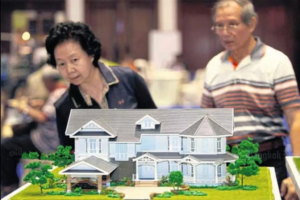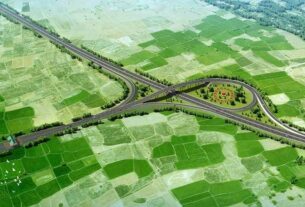 Thailand’s Home Construction Costs Jump to a 10 Year High
Thailand’s Home Construction Costs Jump to a 10 Year High
In the third quarter, Thailand’s conventional home construction price index jumped 6.2% year-over-year, a new high and the largest increase in a decade, mostly due to surging fuel prices.
Since the first quarter of this year, according to Vichai Viratkapan, acting director-general of the Real Estate Information Center, new home construction costs for conventional residences have continued to rise.
“The primary factor was the rise in fuel prices at the beginning of the year,” he stated.
This had a direct effect on the price of making and transporting building supplies.
According to the centre, the conventional new home construction price index rose 6.2% annually and 0.8% quarterly in the third quarter to 132,2. The growth of 6.2% was the highest in 41 quarters.
The head of the Thai Condominium Association, Peerapong Jaroon Ek, stated that rising gasoline prices pushed inflation higher, hurting the price of property construction.
“Developers should control construction to account for rising expenses, which will eventually impair the purchasing power of homeowners,” he said.
Mr. Vichai stated that increased oil prices affected the expenses of home development across all categories.
In the wage category, structural engineering positions experienced the biggest year-over-year increase, at 8%.
Home construction materials skyrocket
The second-largest rise was for architectural employment (5.7%), followed by electrical and communication system jobs (5%) and sanitary system jobs (1.1%).
However, the only quarterly increase was for architectural jobs (up 2.4%), whereas structural engineering jobs, sanitary system jobs, and electrical and communication system jobs all declined by 2.4%, 1.5%, and 0.1%, respectively.
Mr. Vichai remarked that the quarterly change continued to diminish from the first and second quarters, which shows that the increase in home construction prices has slowed.
In the area of construction materials, sanitary ware grew by 13.2%, followed by steel and steel goods (11.5%) and wood and wooden products (9.0%).
In the category of labour wages, prices rose 5.8% annually and 5.5% sequentially in the third quarter.
“Risks for greater home building costs persist in the 4th quarter of this year as the war, and rising interest rates are expected to have an influence on the operating expenses of manufacturers and contractors,” he said.
With 2010 as the base year, the centre and the Thai Home Builders Association created a price index of home construction prices.
Global Economy Looks Bleak
Meanwhile, following the APEC Finance Ministers’ Meeting, Thailand’s Finance Minister Arkhom Termpittayapaisith said the global economy is growing at a rate of 3.2% this year, a significant decrease from 6% last year, and the outlook for 2023 is even bleaker.
Mr. Arkom announced the forecast after the meeting, which was attended by finance ministers and officials of the 21 Asia-Pacific Economic Cooperation economic regions (Apec).
The announcement also noted the presence of representatives from the Asian Development Bank, IMF, World Bank Group, Organization for Economic Cooperation and Development, and APEC Policy Support Unit.
It was stated that the meeting at the Queen Sirikit National Convention Center, where Apec Economic Leaders’ Week would be placed next month, discussed sustainable financing and digitalization for a digital economy.
The statement indicated that finance ministers reviewed inflationary pressure and how to redirect Covid-19 stimulus measures to long-term growth drivers while maintaining budgetary sustainability.
Mr. Arkhom stated at a news conference following the meeting that the IMF gave its prognosis for the world economy to expand by 3.2% this year, a considerable decrease from last year’s projection of 6%. The world economy is projected to contract by 2.7% over the course of the upcoming year.
This year’s projected growth for APEC economies is 2.5%, down from 5.9% last year, he said. The forecast for next year is slightly more optimistic, with a 2.6% expansion, he said.
He stated that the meeting warned of an ongoing turbulent state for the global economy due to the pressures of tightened fiscal policy, the strengthening currency, and the energy crises.
The panel also forecasted that Thailand’s economic growth would increase to 3–3.5% this year, up from 1.5% last year. The rebound in the tourism sector and a targeted fiscal policy to mitigate the effects of rising energy prices and consumer goods are driving the increase, he said, adding that national and regional investments are being encouraged.
According to him, the panel also examined the Asean Catalytic Green Finance Facility, which aims to facilitate the development of green infrastructure. In addition, it highlighted the outcomes of a June forum in Bangkok on Developing the Ecosystem for Sustainable Finance in the Capital Market, he said.
Source: https://www.chiangraitimes.com/news/thailands-home-construction-costs/



